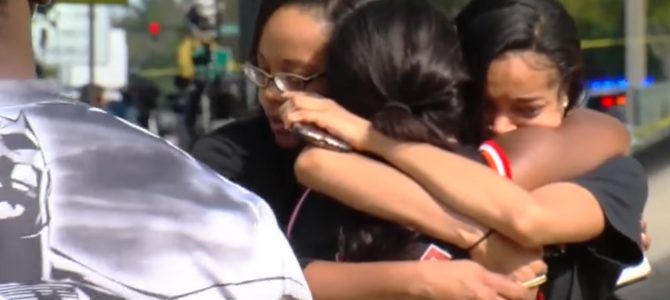
The revelation that the police officer assigned to Marjory Stoneman Douglas High School resigned under investigation for failing to enter the building while a shooter killed 17 people is the latest shock in this tragic story. Those outraged may wonder whether the survivors might be able to sue the former officer or the Sheriff’s office.
The answer, even after an investigation establishes a fuller picture of what occurred during the shooting, is unclear. And one reason for that murkiness is something called the public duty doctrine, which limits the government’s responsibility to protect individual citizens.
The public duty rule is grounded in the principle that the duty of the government entity to preserve the well-being of the community is owed to the public at large rather than to specific members of the community. As a result, the doctrine holds local government entities owe no duty to individual members of the general public to provide adequate government services, such as police and fire protection.
To the layperson, this might sound like sovereign immunity, the idea that the King can do no wrong. Indeed, it is not difficult to find cases where courts (including Florida courts) have confused them. But they are historically and conceptually different.
Consider a typical negligence lawsuit, such as a medical malpractice case. To establish negligence, a plaintiff must show the defendant, maybe a doctor, owed the plaintiff a legal duty, such as a reasonable standard of health care under the circumstances, and that the failure to meet that standard caused damages to the plaintiff.
So the the plaintiff has to prove a special duty — some sort of relationship between the plaintiff and
When considering such a claim against a government officer or agency, the public duty doctrine establishes that the plaintiff must prove a special duty. In the case of the Parkland shooting, that would mean the school would have to prove the officer assigned owed the students and faculty there a special duty, above and beyond what the government owes the public generally.
The doctrine may seem more reasonable if you consider situations other than this particular school shooting. For example, if I am mugged, can I sue the police for failing to catch the mugger for the value of what was stolen? Or if the local police all respond to a report of a school shooting and someone across town makes a 911 call regarding a home invasion, can she sue the police if she is raped due to their failure to respond?
Given these types of concerns, the public duty doctrine is the prevailing law in the vast majority of states, although it’s not followed in jurisdictions of seven states — Missouri, Nebraska, New Mexico, Oregon, Wisconsin, Illinois, and Kansas.
The Florida Supreme Court has provided a “rough” guide to the type of activities that either support or don’t support the recognition of a duty of care between a government actor and an alleged tort victim. The court established two general areas in which the government would owe a general public duty as opposed to a special duty to an individual. The first is in legislative, permitting, licensing and executive officer functions, and the second is in the enforcement of laws and the protection of the public safety. The response to a school shooting arguably falls within the second category, which would suggest that the police did not owe a special duty to those inside the school. But the matter may not be quite so clear cut.
In a prior Florida case, the state’s supreme court ruled that Sheriff’s deputies who responded to a 911 call undertook to determine a woman’s safety, thereby assuming a duty of care, and could be sued for negligently increasing the risk of harm that the woman faced by failing to summon an ambulance. In that case, the officers affirmatively rejected the 911 caller’s suggestion that the woman might be in a diabetic coma and assured concerned third parties that she was simply asleep and did not need medical attention. (The woman died several days later without ever regaining consciousness.)
In the case of this Parkland shooting, it will be important to discover what is meant by the officer being “assigned” to the school. He reportedly had been a school resource officer at Stoneman Douglas since 2009. An investigation may support the argument that the police had undertaken a special duty to students, faculty and staff at the school.
If such a duty were found to exist (and a breach of that duty contributing to the deaths were established), any potential government defendant still may be able to argue sovereign immunity as a defense. (This highlights the difference between the public duty doctrine, which addresses the elements a plaintiff must establish to show a valid claim, and sovereign immunity, which would be a potential defense to that claim.) The issue might then become whether that immunity was waived based upon a wanton and willful disregard of human rights, safety, or property.
For the sake of completeness, in addition to noting that I am not licensed to practice law in Florida and that none of this should be considered legal advice, lawyers representing the survivors would also probably consider a federal civil rights action. However, the case law in this area similarly tends to revolve around the relationship between the plaintiff and the defendant.









